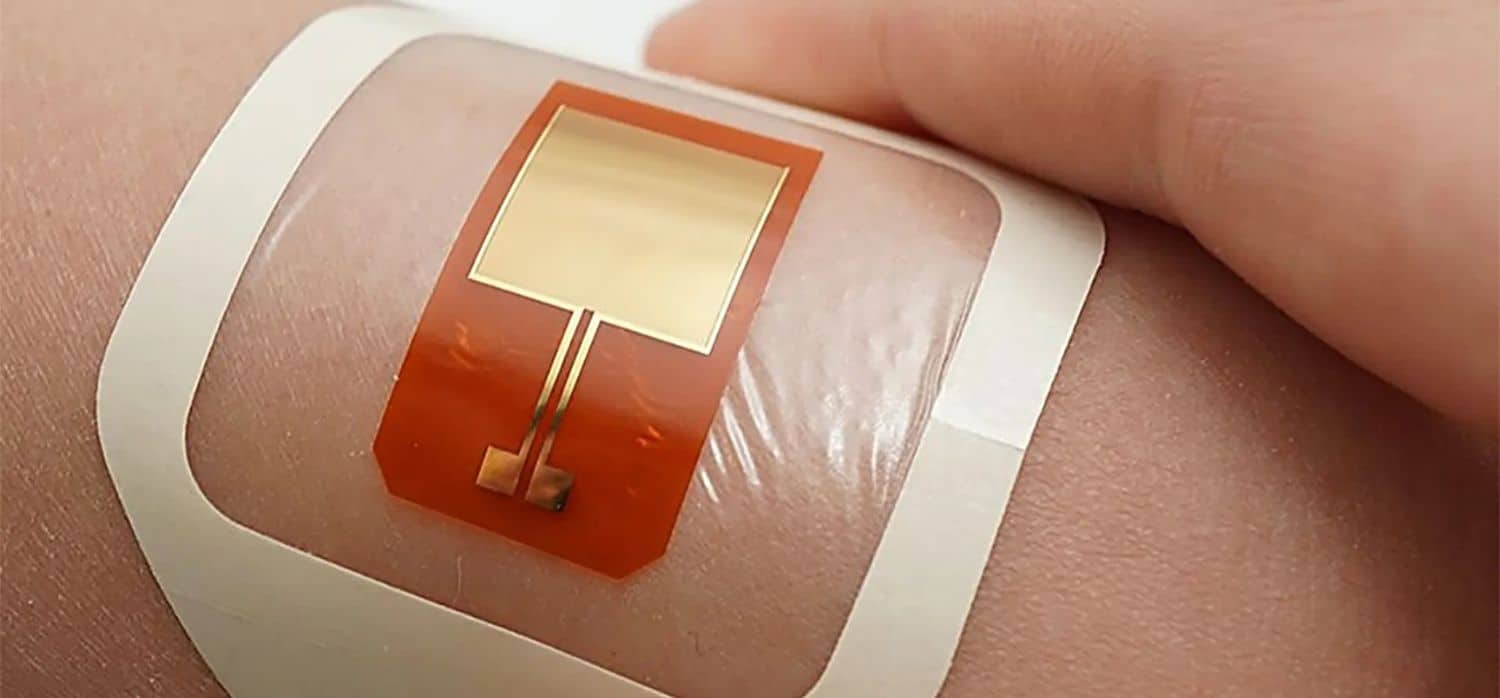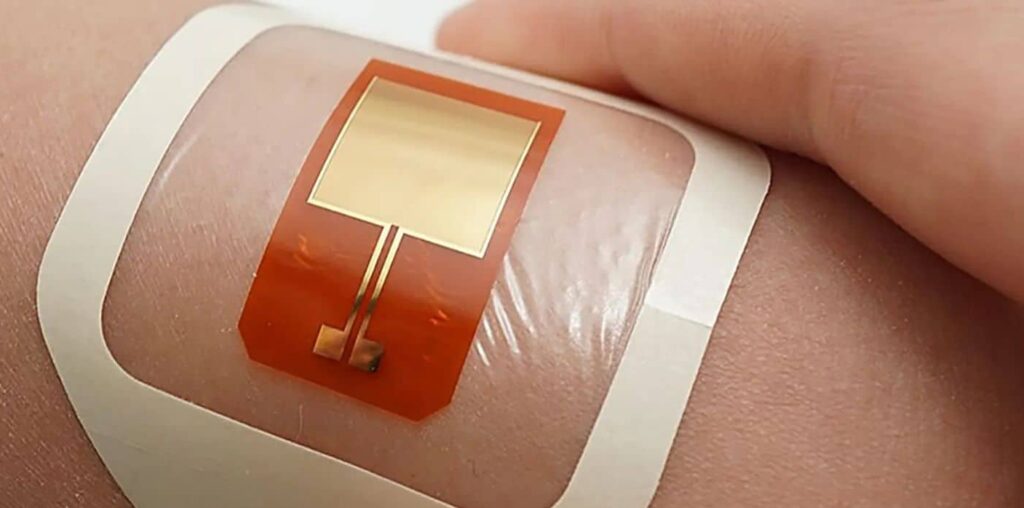
Spotted: Antimicrobial resistance (AMR) is one of the biggest (and growing) global health concerns, with drug-resistant infections predicted to be responsible for two million deaths a year by 2050. Now, a team of researchers from the University of Chicago and the University of California San Diego believe they may have a solution that could tackle infections in a new way.
The scientists’ innovation, a unique bioelectronic device, targets infections without the use of drugs. When applied to the skin, the small device creates gentle electrical signals that alter the way harmful bacteria behave, curbing their growth and stopping them from creating bacterial clusters that cause harmful infections.
The flexible patch device was trialled on Staphylococcus epidermidis, which is a dangerous bacterium found on human skin that often causes infections in hospital settings. Preclinical tests on pig skin showed that the device decreased bacterial colonisation tenfold, meaning it could help to significantly reduce the spread and effects of antibiotic-resistant infections in hospitals.
In addition to enabling more personalised treatment options for those suffering from bacterial infections, bioelectronics bypasses the need to develop and approve new drugs that typically come with side effects. The targeted treatment is expected to be especially suitable for patients with chronic wounds or medical implants, who are most vulnerable to opportunistic infections.
Written By: Duncan Whitmore

